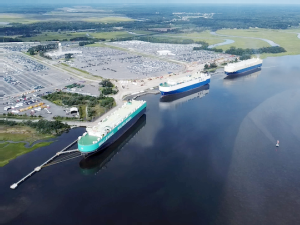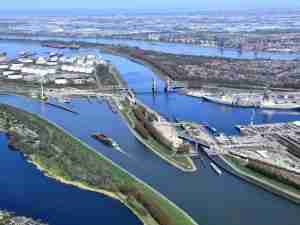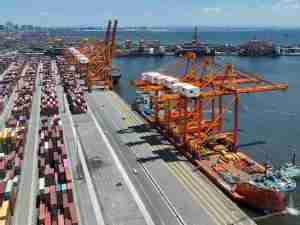The shareholders' standoff precedes the state's expected sale of a 20 percent stake in the port - controlled by state property watchdog Rosimushchestvo - as a part of a broader privatization program to raise funds for Russia's budget.
Rado Antolovic, the Chief of Executive of Novorossiisk Commercial Sea Port (NCSP Group), denied accusations of under investment and slow growth.
Transneft chief Nikolai Tokarev said the pipeline operator had called for a change of management at NCSP and wanted to reduce the influence of Ziyavudin Magomedov's Summa Group.
"I was very surprised when I read that," NCSP Group Chief Executive Rado Antolovic said late on Sunday, citing a high level of board support for his candidacy as CEO. "My team and I will be successful, not by 90 percent, but by 100 percent, and our results speak for themselves."
Transneft and Rosneft have been seeking tighter control over oil flows, the lifeblood of Russia's $2.1 trillion-strong economy. Last year, Novorossiisk handled 42.5 million tons of oil, while Primorsk exported 68.15 million tonnes - accounting for more than a half of crude exports from the world's top oil producer.
Earlier this month, Rosneft secured several contracts to supply oil directly to European customers, bypassing trading structures, operating on Transneft's "Druzhba" pipeline. .
Those shifts in the control of Russia's oil flows, combined with Tokarev's remarks last week suggested the pipeline operator was lining up for battle against private magnates who built their fortunes around the company's export infrastructure.
State-owned Transneft and Summa jointly own 50.1 percent in the port operator, which also controls the Baltic port of Primorsk, via Novoport Holding Ltd.
According to industry sources, Antolovic was offered the post of NCSP director general by Summa. He then took the helm last April.
According to NCSP data, Russian Railways owns 5.3 percent, with 21.9 percent ownership described as "other stakeholders".
Summa is one contender for the stake, while Rosneft , the state oil company headed by Igor Sechin, a longtime political ally of President Vladimir Putin, has suggested it could buy it rather than see it sold on the market.
Moscow-traded NCSP shares fell 3 percent in afternoon trade on Monday, underperforming a 0.17 percent decline in the broader market.
Accusations Fly
On Monday, at a separate news conference, Transneft accused the port management of under-investing in infrastructure, saying that out of 5.44 billion roubles ($180.51 million) set aside for investment in 2012, only 2.5 billion roubles were spent.
Maxim Grishanin, Transneft's vice president, also said the port may face difficulty managing its debt of $1.95 billion, mostly borrowed from Russia's top lender, Sberbank, to buy Primorsk.
Antolovic, speaking with journalists in the Novorossiisk port on Monday, said he saw no problems over its debt, adding that NCSP planned talks on refinancing by the end of 2013.
Kommersant newspaper reported last week that Grishanin was Transneft's pick to replace Antolovic. (Reuters)










